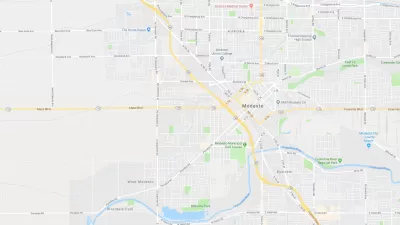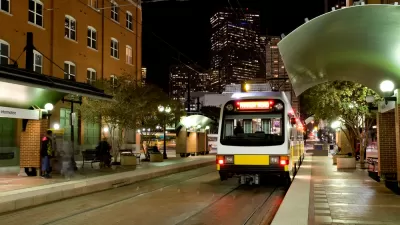The seventh round of TIGER funding was announced last week. Louisville provides a case study of how cities engage with the competitive grant process.
"Project selections for the seventh round of DOT's Transportation Investment Generating Economic Recovery (TIGER) competitive grant program were announced on October 29, 2015," according to a post on the U.S. Department of Transportation website. "The Department will provide nearly $500 million for 39 projects in 34 states, with some projects spanning several states."
The U.S. DOT splits the projects into three categories of projects: safety, innovation, and opportunity. A fact sheet provides more details on each of the 39 projects [pdf] awarded funding in this year's round of grants.
Although few local media outlets picked up the news of their grant awards last week, a spate of coverage on the mixed-results of Louisville in the TIGER process set the pace for public discussion of the potential of TIGER funding. Earlier in October, Jacob Ryan wrote extensively on the city's inability to apply for TIGER funding for the Move Louisville plan, which could pay off in the long run with project proposals that will be easy winners in competitive grant processes. Later in the month, however, Klayko noted that the city had received its first TIGER grant, for a project "to remake Dixie Highway into a multi-modal street complete with the city’s first Bus Rapid Transit System on dedicated bus lanes." Klayko's article also provides a survey of the progress on several of the transit-focused initiatives ongoing in the city of Louisville.
FULL STORY: TIGER Discretionary Grants

Planetizen Federal Action Tracker
A weekly monitor of how Trump’s orders and actions are impacting planners and planning in America.

Maui's Vacation Rental Debate Turns Ugly
Verbal attacks, misinformation campaigns and fistfights plague a high-stakes debate to convert thousands of vacation rentals into long-term housing.

San Francisco Suspends Traffic Calming Amidst Record Deaths
Citing “a challenging fiscal landscape,” the city will cease the program on the heels of 42 traffic deaths, including 24 pedestrians.

Amtrak Rolls Out New Orleans to Alabama “Mardi Gras” Train
The new service will operate morning and evening departures between Mobile and New Orleans.

The Subversive Car-Free Guide to Trump's Great American Road Trip
Car-free ways to access Chicagoland’s best tourist attractions.

San Antonio and Austin are Fusing Into one Massive Megaregion
The region spanning the two central Texas cities is growing fast, posing challenges for local infrastructure and water supplies.
Urban Design for Planners 1: Software Tools
This six-course series explores essential urban design concepts using open source software and equips planners with the tools they need to participate fully in the urban design process.
Planning for Universal Design
Learn the tools for implementing Universal Design in planning regulations.
Heyer Gruel & Associates PA
JM Goldson LLC
Custer County Colorado
City of Camden Redevelopment Agency
City of Astoria
Transportation Research & Education Center (TREC) at Portland State University
Jefferson Parish Government
Camden Redevelopment Agency
City of Claremont




























